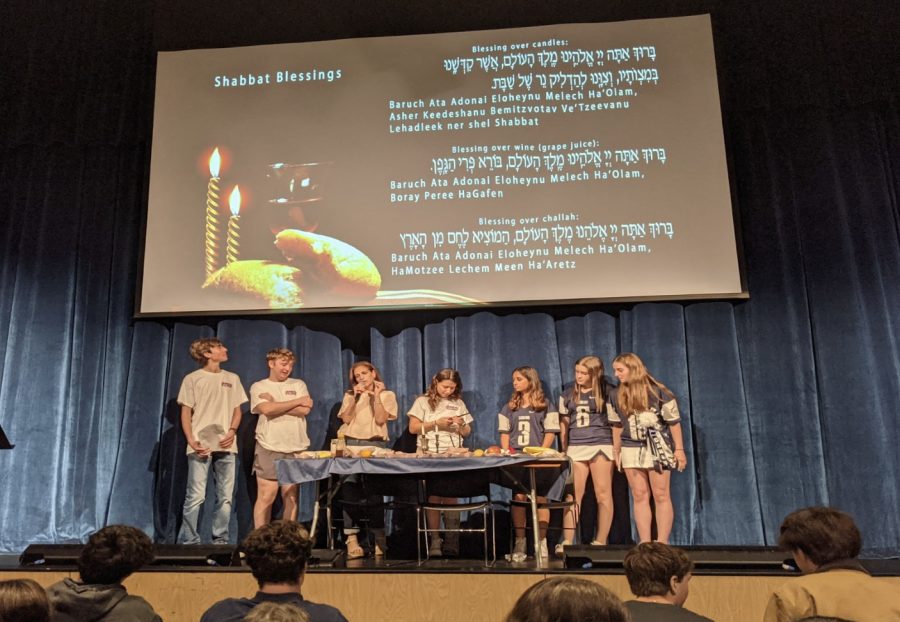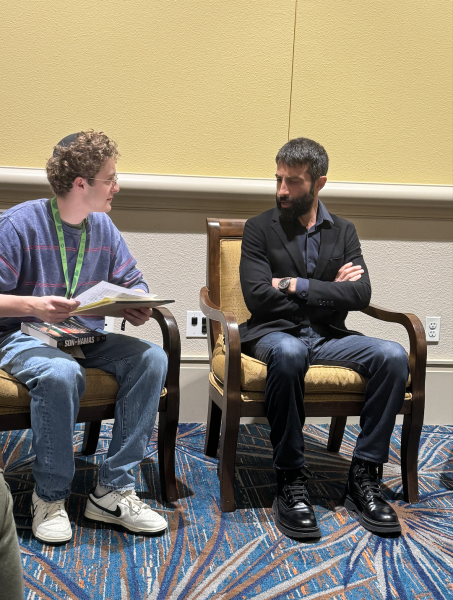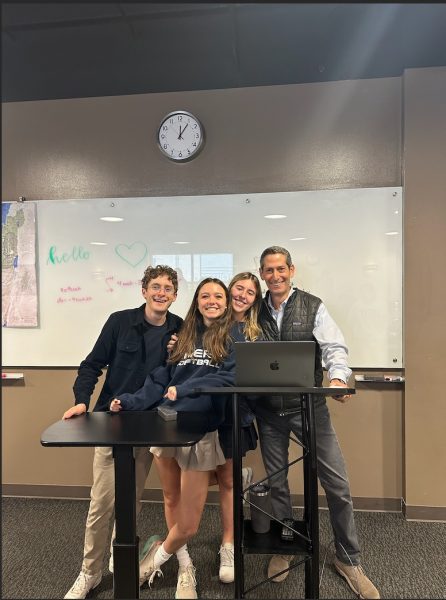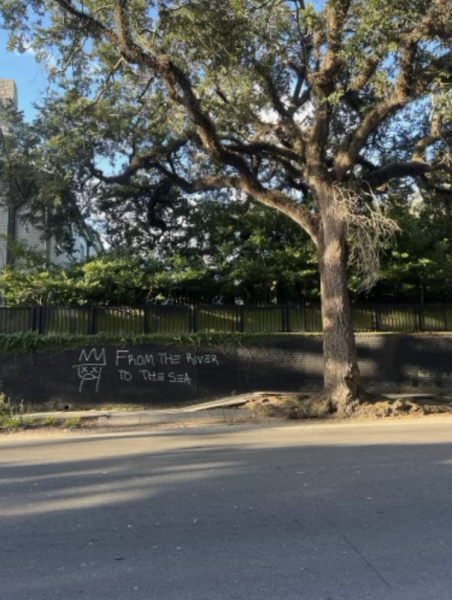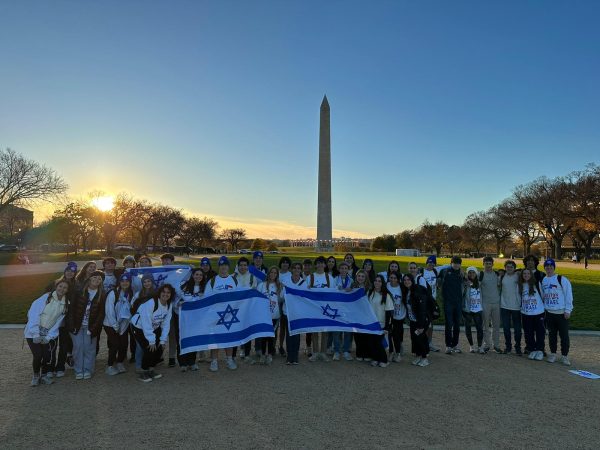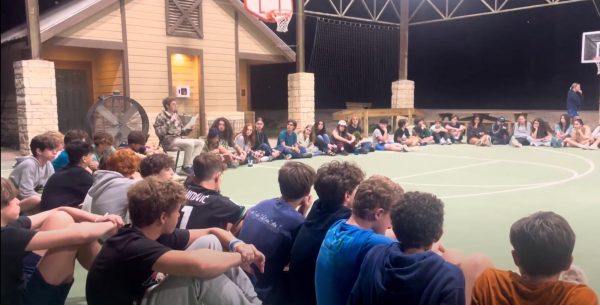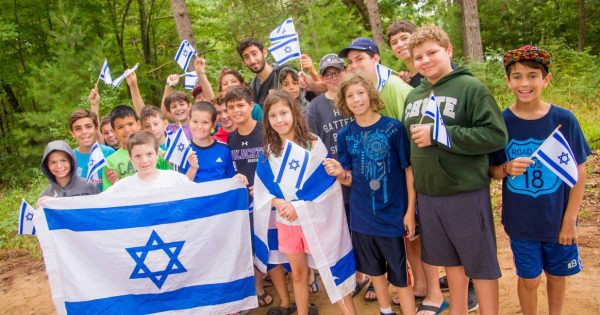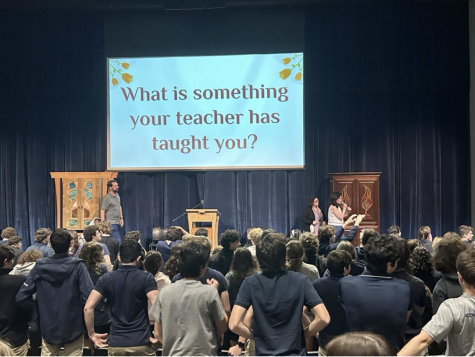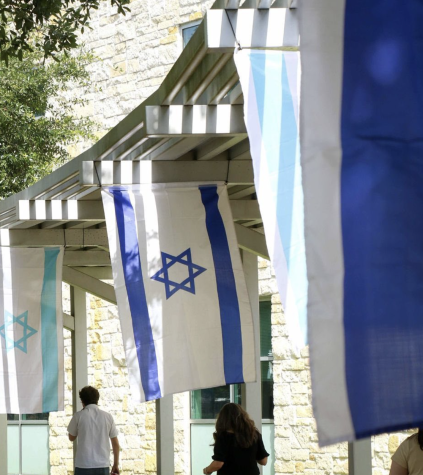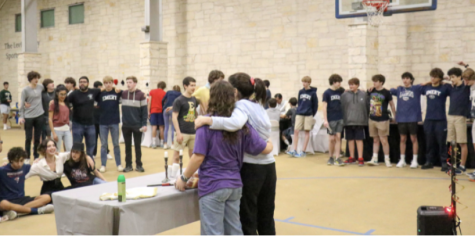Kicking Off the Jewish New Year: Emery’s Celebration of Rosh Hashanah
Board of JLC leading Rosh Hashanah festivities.
October 20, 2022
Jewish families around the world prepared to celebrate the beginning of the Jewish new year this past Sept. 25-27. Rosh Hashanah is a special time for many to reflect on and commemorate G-d’s creation of the world.
“Rosh Hashanah is a new beginning,” says upper school Hebrew teacher Mrs. Oren. “It’s a chance for me to actually think about what I’ve done so far and where I want to go this year.”
Solemn reflection and repentance are vital aspects in the observance of Rosh Hashanah; however, it is just as much a time of joy and celebration. Jews around the world gather with beloved family members, eat the symbolic apples and honey, and attend synagogue for a special service filled with messages of hope and atonement in the new year.
“The most unique thing about Rosh Hashanah is that it’s a mixture of joy, but also seriousness,” says the Head of the Jewish Life Committee, Rabbi Laura Sheinkopf. “Yom Kippur is totally solemn, and Sukkot is totally joyous, but Rosh Hashanah is both. It’s the only holiday like that.”
To recognize Rosh Hashanah here in the Emery community, the JLC organized a special and eventful assembly, known at Emery as ‘Ma’amad,’ the Friday prior to the holiday. The Becker Theater was filled with laughter as students were tasked to dip an apple in honey and feed it to their partner blindfolded. The Ma’amad concluded with a sincere message from Sheinkopf, the school’s rabbi. Rosh Hashanah events allow Emery students to have some fun going into the holiday while reflecting on why we celebrate Rosh Hashanah in the first place.
“It’s meaningful to me that we make some time to recognize the holiday, even though we get two days off for it,” says senior David Anapolsky. “My favorite part about the Rosh Hashanah Ma’amad at Emery last year was the Shofar-blowing contest.”
While we do take some time to acknowledge the Jewish high holidays at Emery, it is difficult to meaningfully commemorate many of the Jewish holidays as a community beyond a fun Ma’amad. According to Sheinkopf, this is because in order for Emery to be a pluralistic school, it has to be closed on all of the Jewish holidays, so that we can make sure to respect everybody’s individual observance. However, this also means that because Emery takes many days off for the holidays, the days that we are in school must be focused on educating the students, and can not have any extra holiday celebrations.
“I feel bad about that, and that’s a struggle that I have as the Rabbi of the school is how to balance that,” says Sheinkopf. “Because I want more people to know about the holidays, but at the same time, on the holiday, we’re not here.”
While Rosh Hashanah’s significance is not taught at Emery because of time restraints, the days off allow for the faithful observance of the holiday, which remains an integral part of the Jewish identity for many students.
